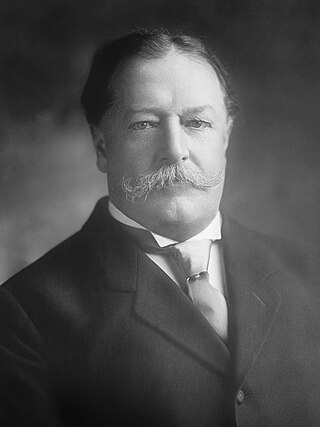
The Huns were a nomadic people who lived in Central Asia, the Caucasus, and Eastern Europe between the 4th and 6th century AD. According to European tradition, they were first reported living east of the Volga River, in an area that was part of Scythia at the time; the Huns' arrival to Europe is associated with the migration westward of an Iranian people, the Alans. By 370 AD, the Huns had arrived on the Volga, and by 430, they had established a vast, if short-lived, dominion in Europe, conquering the Goths and many other Germanic peoples living outside of Roman borders and causing many others to flee into Roman territory.

Henry Alfred Kissinger is an American diplomat, political theorist, geopolitical consultant, and politician who served as United States Secretary of State and National Security Advisor under the presidential administrations of Richard Nixon and Gerald Ford. For his actions negotiating a ceasefire in Vietnam, Kissinger received the 1973 Nobel Peace Prize under controversial circumstances.

Henry VII was King of England from his seizure of the crown on 22 August 1485 until his death in 1509. He was the first monarch of the House of Tudor.

William Howard Taft was the 27th president of the United States (1909–1913) and the tenth chief justice of the United States (1921–1930), the only person to have held both offices. Taft was elected president in 1908, the chosen successor of Theodore Roosevelt, but was defeated for reelection in 1912 by Woodrow Wilson after Roosevelt split the Republican vote by running as a third-party candidate. In 1921, President Warren G. Harding appointed Taft to be chief justice, a position he held until a month before his death.

The Yom Kippur War, also known as the Ramadan War, the October War, the 1973 Arab–Israeli War, or the Fourth Arab–Israeli War, was an armed conflict fought from October 6 to 25, 1973 between Israel and a coalition of Arab states led by Egypt and Syria. The majority of combat between the two sides took place in the Sinai Peninsula and the Golan Heights—both of which were occupied by Israel in 1967—with some fighting in African Egypt and northern Israel. Egypt's initial objective in the war was to seize a foothold on the eastern bank of the Suez Canal and subsequently leverage these gains to negotiate the return of the rest of the Israeli-occupied Sinai Peninsula.

Soylent Green is a 1973 American ecological dystopian thriller film directed by Richard Fleischer, and starring Charlton Heston, Leigh Taylor-Young, and Edward G. Robinson in his final film role. It is loosely based on the 1966 science-fiction novel Make Room! Make Room! by Harry Harrison, with a plot that combines elements of science fiction and a police procedural. The story follows a murder investigation in a dystopian future of dying oceans and year-round humidity caused by the greenhouse effect, with the resulting pollution, depleted resources, poverty, and overpopulation. In 1973, it won the Nebula Award for Best Dramatic Presentation and the Saturn Award for Best Science Fiction Film.

The Watergate scandal was a major political scandal in the United States involving the administration of President Richard Nixon from 1972 to 1974 that led to Nixon's resignation. The scandal stemmed from the Nixon administration's persistent attempts to cover up its involvement in the June 17, 1972 burglary of the Democratic National Committee headquarters at the Washington, D.C., Watergate Office Building.

Secretariat, also known as Big Red, was a champion American thoroughbred racehorse who is the ninth winner of the American Triple Crown, setting and still holding the fastest time record in all three races. He is regarded as one of the greatest racehorses of all time. He became the first Triple Crown winner in 25 years and his record-breaking victory in the Belmont Stakes, which he won by 31 lengths, is widely regarded as one of the greatest races in history. During his racing career, he won five Eclipse Awards, including Horse of the Year honors at ages two and three. He was nominated to the National Museum of Racing and Hall of Fame in 1974. In the Blood-Horse magazine List of the Top 100 U.S. Racehorses of the 20th Century, Secretariat was second to Man o' War.

The Byrds were an American rock band formed in Los Angeles, California, in 1964. The band underwent multiple lineup changes throughout its existence, with frontman Roger McGuinn remaining the sole consistent member. Although their time as one of the most popular groups in the world only lasted for a short period in the mid-1960s, the Byrds are today considered by critics to be among the most influential rock acts of their era. Their signature blend of clear harmony singing and McGuinn's jangly 12-string Rickenbacker guitar was "absorbed into the vocabulary of rock" and has continued to be influential.

Bobby Darin was an American musician and actor. He performed jazz, pop, rock and roll, folk, swing, and country music.

The Eurovision Song Contest 1973 was the 18th edition of the annual Eurovision Song Contest. It took place in Luxembourg City, Luxembourg, following the country's victory at the 1972 contest with the song "Après toi" by Vicky Leandros. Organised by the European Broadcasting Union (EBU) and host broadcaster Compagnie Luxembourgeoise de Télédiffusion (CLT), the contest was held at the Grand Théâtre on 7 April 1973 and was hosted by German television presenter Helga Guitton.

The 1973 oil crisis or first oil crisis began in October 1973 when the members of the Organization of Arab Petroleum Exporting Countries (OAPEC), led by King Faisal of Saudi Arabia, proclaimed an oil embargo. The embargo was targeted at nations that had supported Israel during the Yom Kippur War. The initial nations targeted were Canada, Japan, the Netherlands, the United Kingdom and the United States, though the embargo also later extended to Portugal, Rhodesia and South Africa. By the end of the embargo in March 1974, the price of oil had risen nearly 300%, from US$3 per barrel ($19/m3) to nearly $12 per barrel ($75/m3) globally; US prices were significantly higher. The embargo caused an oil crisis, or "shock", with many short- and long-term effects on global politics and the global economy. It was later called the "first oil shock", followed by the 1979 oil crisis, termed the "second oil shock".

Julius Kambarage Nyerere was a Tanzanian anti-colonial activist, politician, and political theorist. He governed Tanganyika as prime minister from 1961 to 1962 and then as president from 1962 to 1964, after which he led its successor state, Tanzania, as president from 1964 to 1985. He was a founding member and chair of the Tanganyika African National Union (TANU) party, and of its successor Chama Cha Mapinduzi, from 1954 to 1990. Ideologically an African nationalist and African socialist, he promoted a political philosophy known as Ujamaa.

Robert James Fischer was an American chess grandmaster and the eleventh World Chess Champion. A chess prodigy, he won his first of a record eight US Championships at the age of 14. In 1964, he won with an 11–0 score, the only perfect score in the history of the tournament. Qualifying for the 1972 World Championship, Fischer swept matches with Mark Taimanov and Bent Larsen by 6–0 scores. After another qualifying match against Tigran Petrosian, Fischer won the title match against Boris Spassky of the USSR, in Reykjavík, Iceland. Publicized as a Cold War confrontation between the US and USSR, the match attracted more worldwide interest than any chess championship before or since.

The 1973–74 season of the European Cup football club tournament was won for the first time by Bayern Munich, beginning their own three-year period of domination, in a replayed final against Atlético Madrid, the only such occasion in the tournament's final. This was the first time the cup went to Germany, and the only European Cup final to require a replay after the first match was drawn 1–1 after extra time.
The 1973–74 UEFA Cup was the third season of the UEFA Cup since its inception in 1971. It was won by Dutch side Feyenoord who defeated English side Tottenham Hotspur 4–2 on aggregate after two matches.

The dreadnought was the predominant type of battleship in the early 20th century. The first of the kind, the Royal Navy's HMS Dreadnought, had such an effect when launched in 1906 that similar battleships built after her were referred to as "dreadnoughts", and earlier battleships became known as pre-dreadnoughts. Her design had two revolutionary features: an "all-big-gun" armament scheme, with an unprecedented number of heavy-calibre guns, and steam turbine propulsion. As dreadnoughts became a crucial symbol of national power, the arrival of these new warships renewed the naval arms race between the United Kingdom and Germany. Dreadnought races sprang up around the world, including in South America, lasting up to the beginning of World War I. Successive designs increased rapidly in size and made use of improvements in armament, armour, and propulsion throughout the dreadnought era. Within five years, new battleships outclassed Dreadnought herself. These more powerful vessels were known as "super-dreadnoughts". Most of the original dreadnoughts were scrapped after the end of World War I under the terms of the Washington Naval Treaty, but many of the newer super-dreadnoughts continued serving throughout World War II.

The Saturn Awards are American awards presented annually by the Academy of Science Fiction, Fantasy and Horror Films. The awards were created to honor science fiction, fantasy, and horror in film, but have since grown to reward other films belonging to genre fiction, as well as television and home media releases. The Saturn Awards were created in 1973 and were originally referred to as Golden Scrolls.

The Non-Aligned Movement (NAM) is a forum of 120 countries that are not formally aligned with or against any major power bloc. After the United Nations, it is the largest grouping of states worldwide.


















